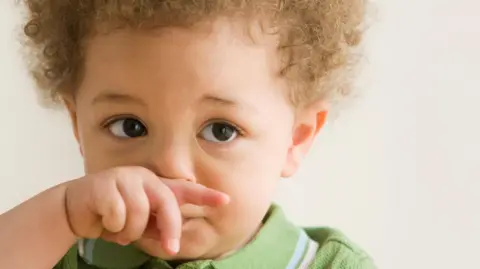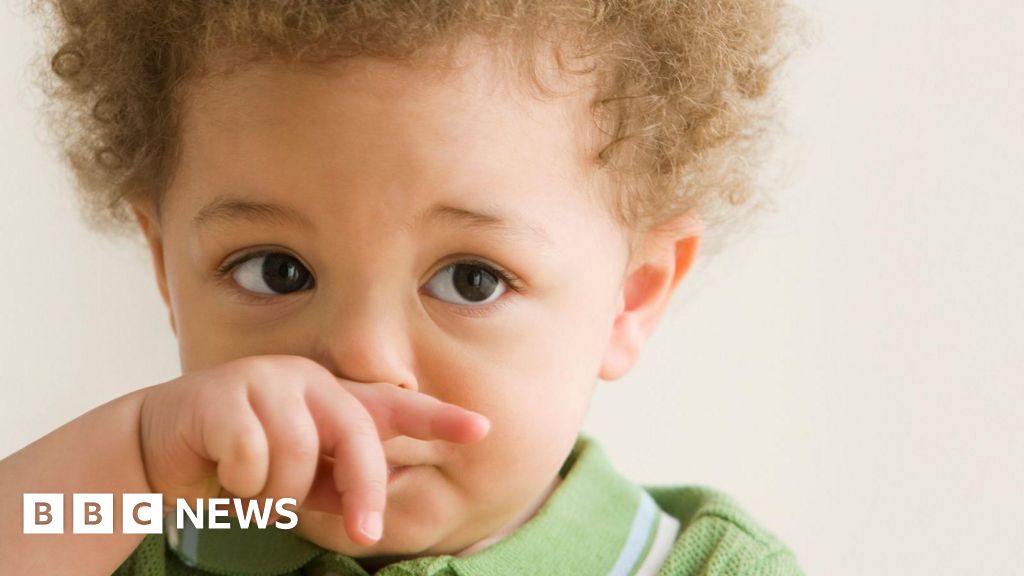 Getty Images
Getty ImagesNine babies have died from whooping cough since November 2023, with cases continuing to rise, the UK Health Security Agency says.
Its latest figures for England show 2,591 confirmed cases in May, with a total of 7,599 since January.
Experts worry this is a bumper year for the bacterial infection, which can be particularly harmful for young babies.
They are urging pregnant women and children to ensure they are up-to-date with vaccines.
The last peak was in 2016, when there were some 5,945 cases.
Whooping cough – also known as the 100-day cough and by its medical name, pertussis – is a bacterial infection that can affect the lungs and cause prolonged bouts of coughing.
More than half of the 7,599 cases from January to May have been in over-14s, who usually get a mild illness.
But 262 were in babies under three months, who are at the highest risk of complications and death.
Why are cases rising?
Whooping-cough cases have been rising in England and many other countries since the beginning of the year.
It is cyclical, with peaks every three to five years.
The last was in 2016 and there was a major outbreak was in 2012 with more than 9,000 cases, before the introduction of a vaccine programme for pregnant women.
The UKHSA says the number of people getting whooping cough fell during the pandemic, leaving “a peak year overdue” and resulting in less immunity in the population.
Vaccination rates among pregnant women are also a factor – with 58.9% uptake of jabs in March 2024 compared with a high of 72.6% in March 2017.
UKHSA immunisation director Dr Mary Ramsay said: “Ensuring women are vaccinated appropriately in pregnancy has never been more important.
“Pregnant women are offered a whooping-cough vaccine in every pregnancy, ideally between 20 and 32 weeks.
“This passes protection to their baby in the womb so that they are protected from birth in the first months of their life, when they are most vulnerable and before they can receive their own vaccines.
“Our thoughts and condolences are with those families who have so tragically lost their baby.”
Women can get the vaccine through their GP or some antenatal clinics.
All babies are also offered three doses of the six-in-one vaccine, at eight, 12 and 16 weeks of age, to protect against whooping cough and other serious diseases.
Children are then offered a pre-school booster – and any who have not been vaccinated can still get the jab up to the age of 10.
What are the signs of whooping cough?
The first signs of whooping cough can feel like a cold, with a runny nose and sore throat.
After about a week, the infection can develop into coughing bouts that last for a few minutes and are generally worse at night.
Some young babies may also make a distinctive “whoop” sound or have difficulty breathing after a bout of coughing. But this is not always the case, which can make whooping cough hard to recognise.
People with whooping cough should stay at home and not go to work, school or nursery until 48 hours after starting antibiotics or, if they have not had antibiotics, two weeks after symptoms start.
